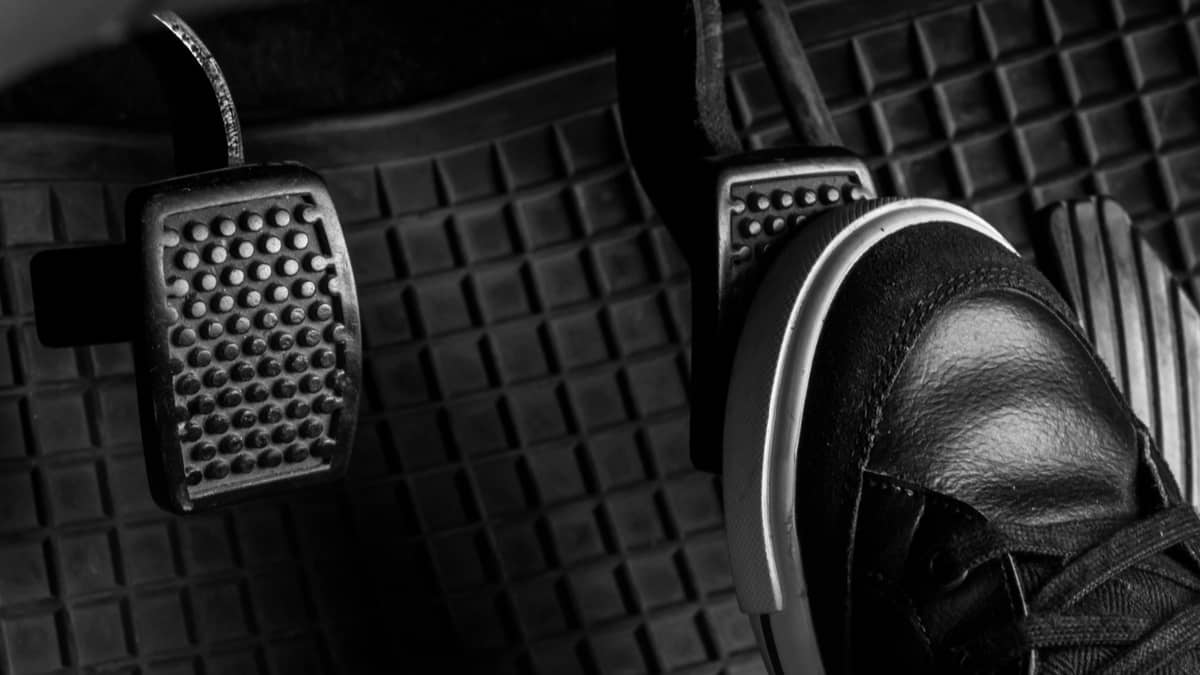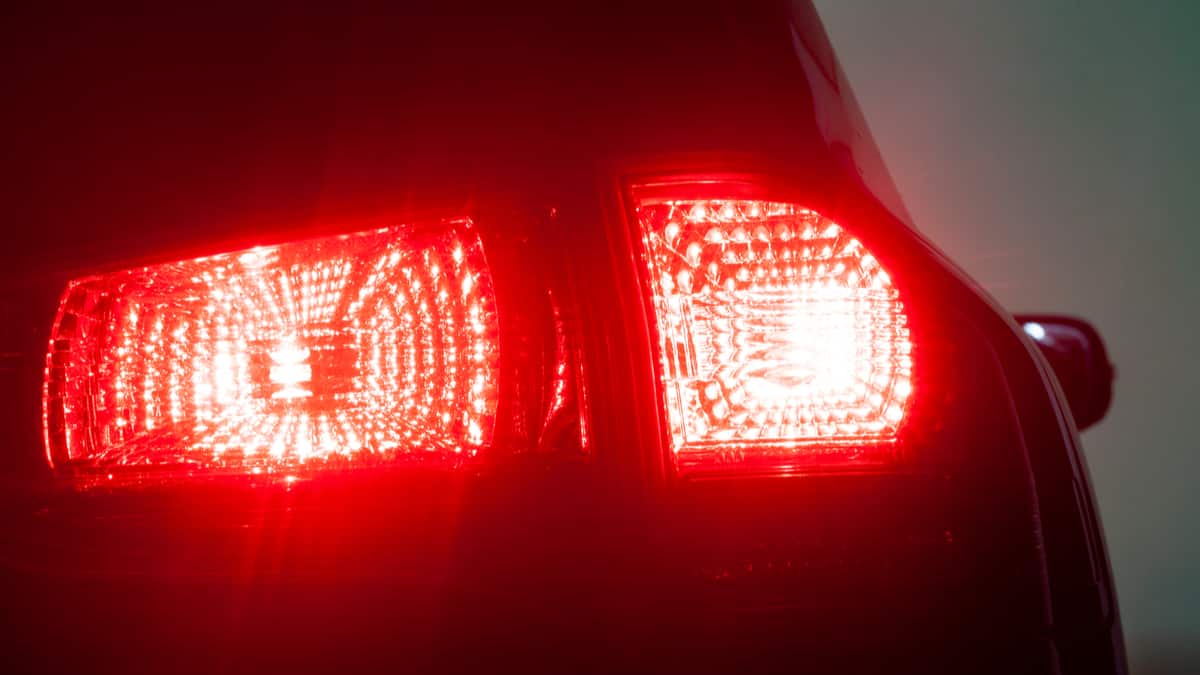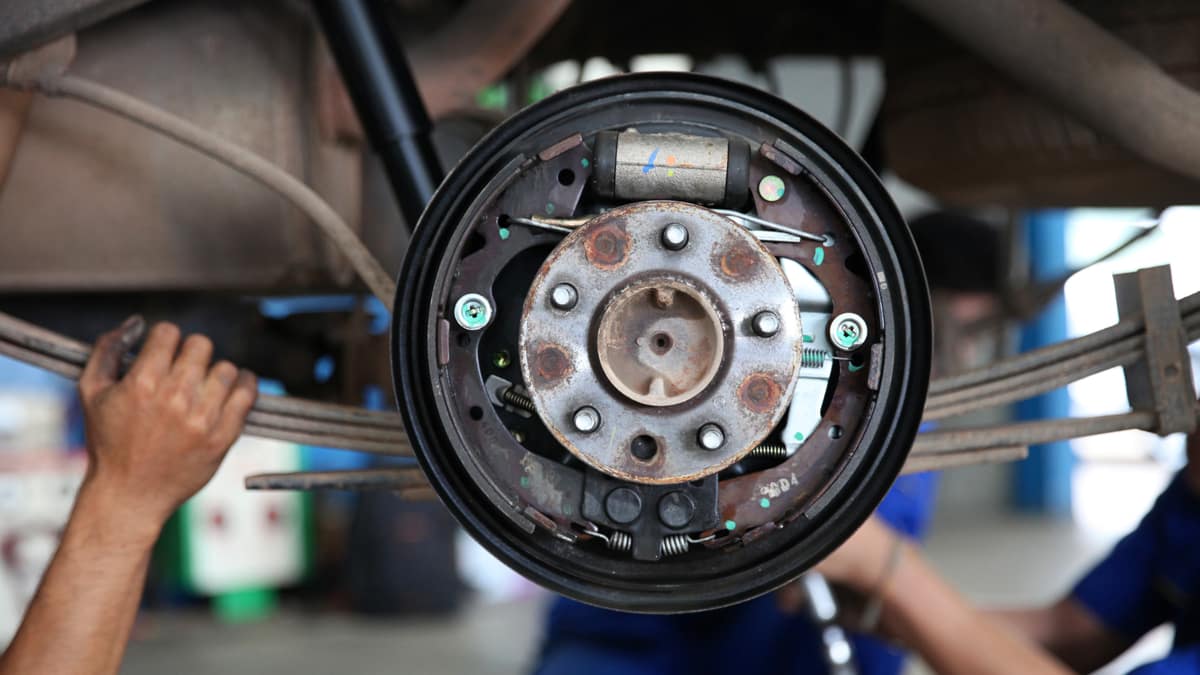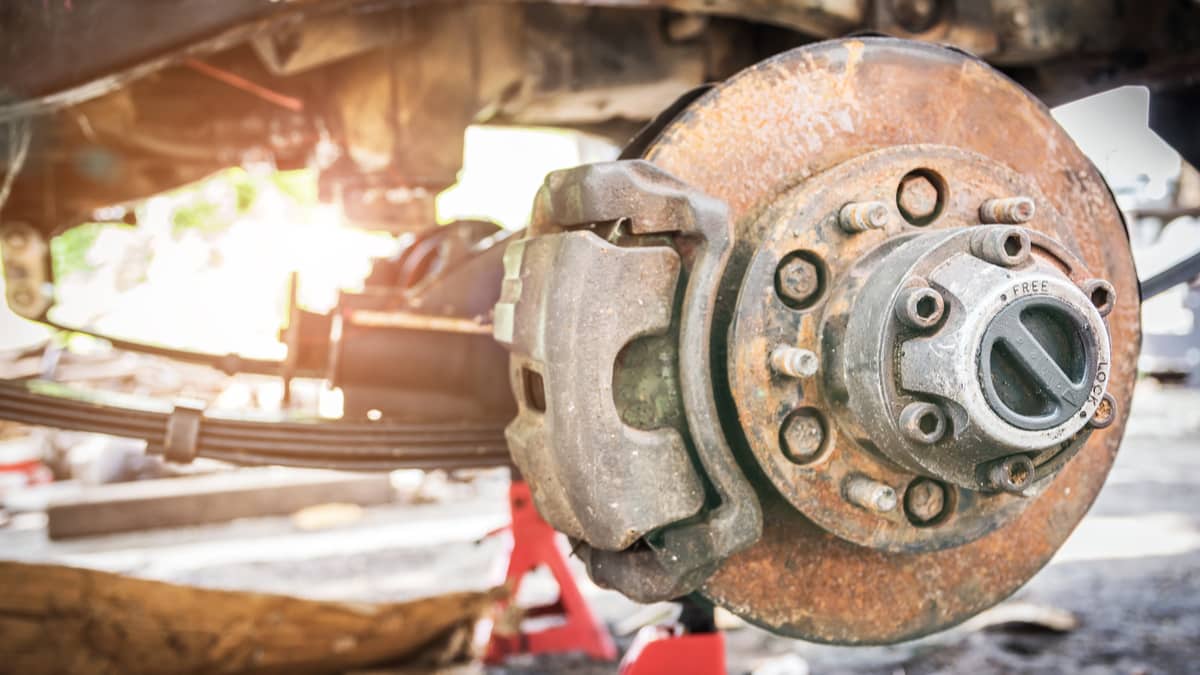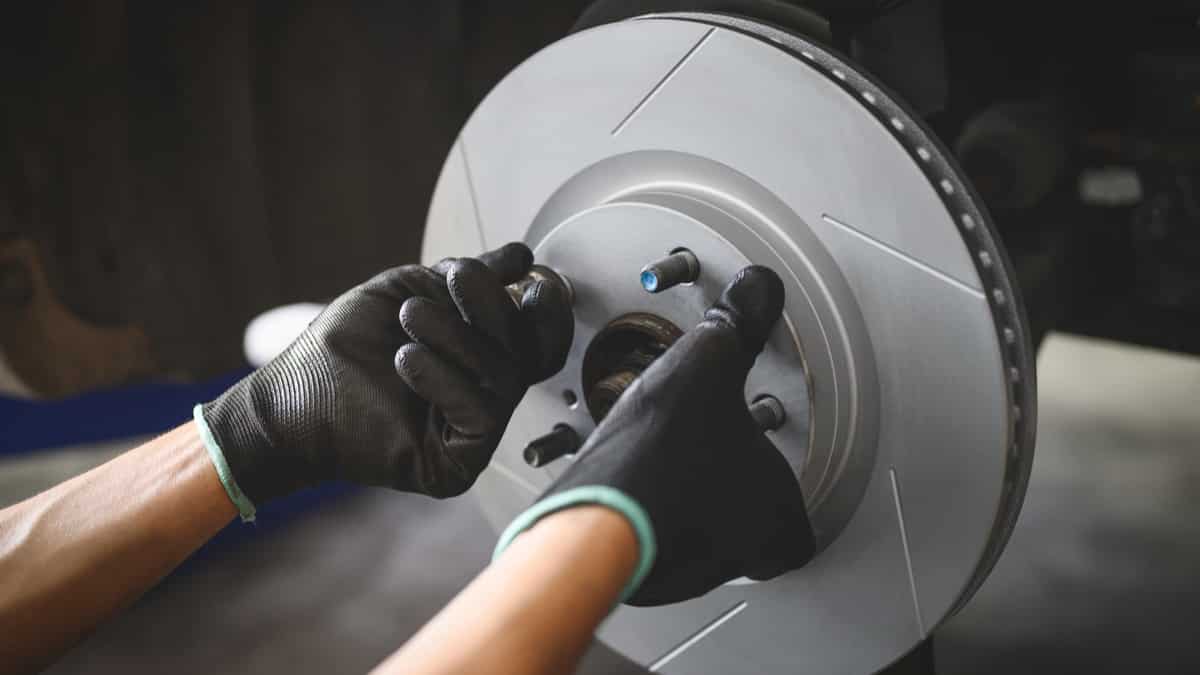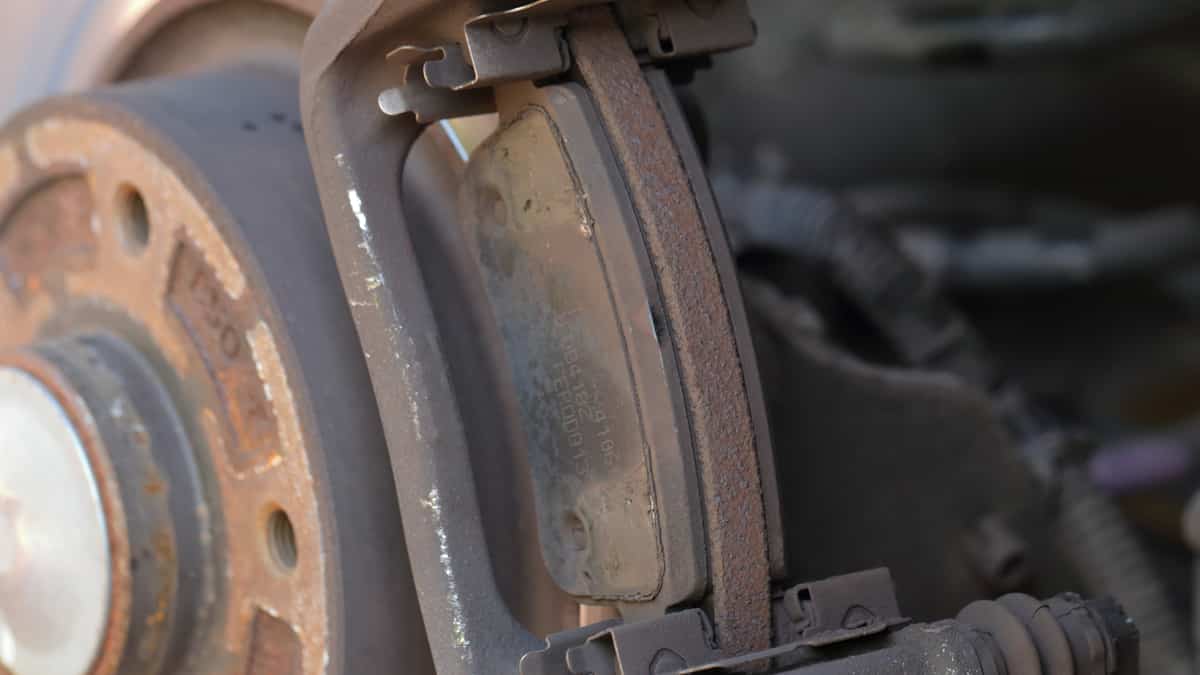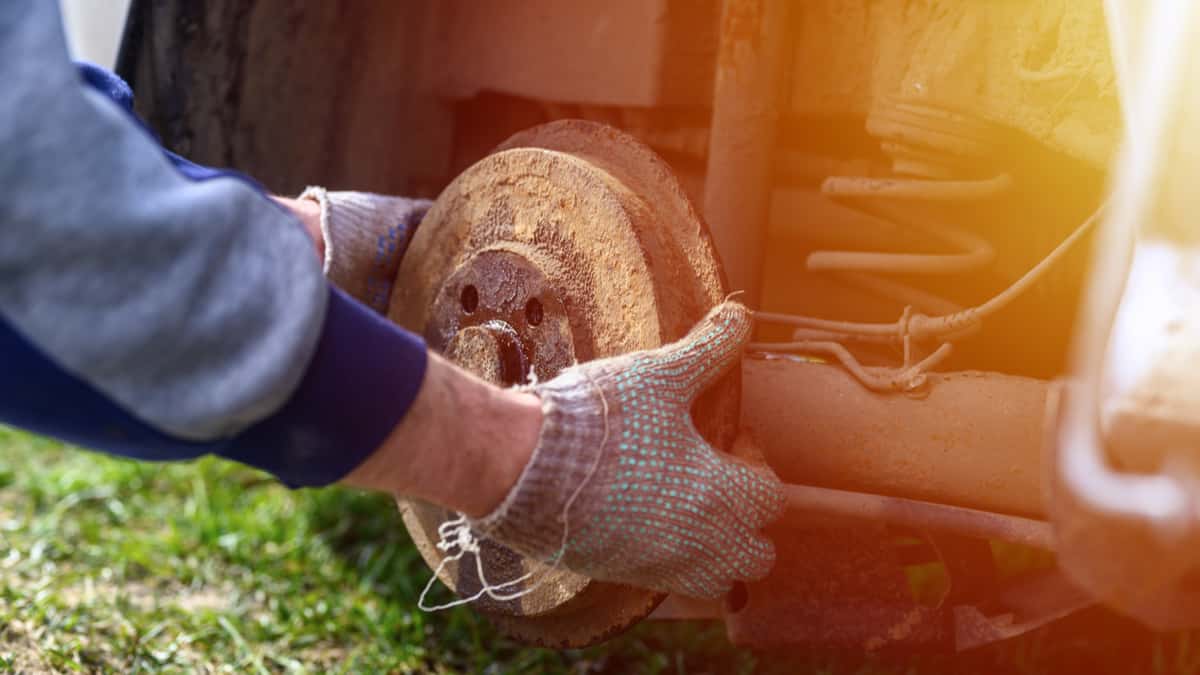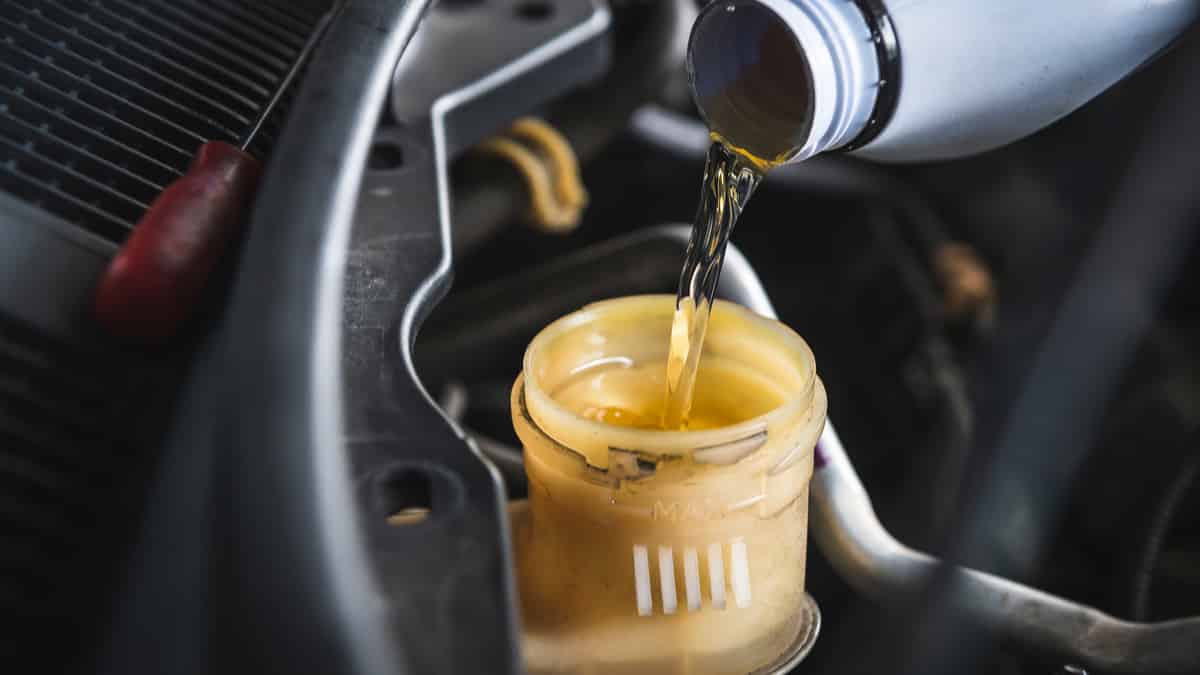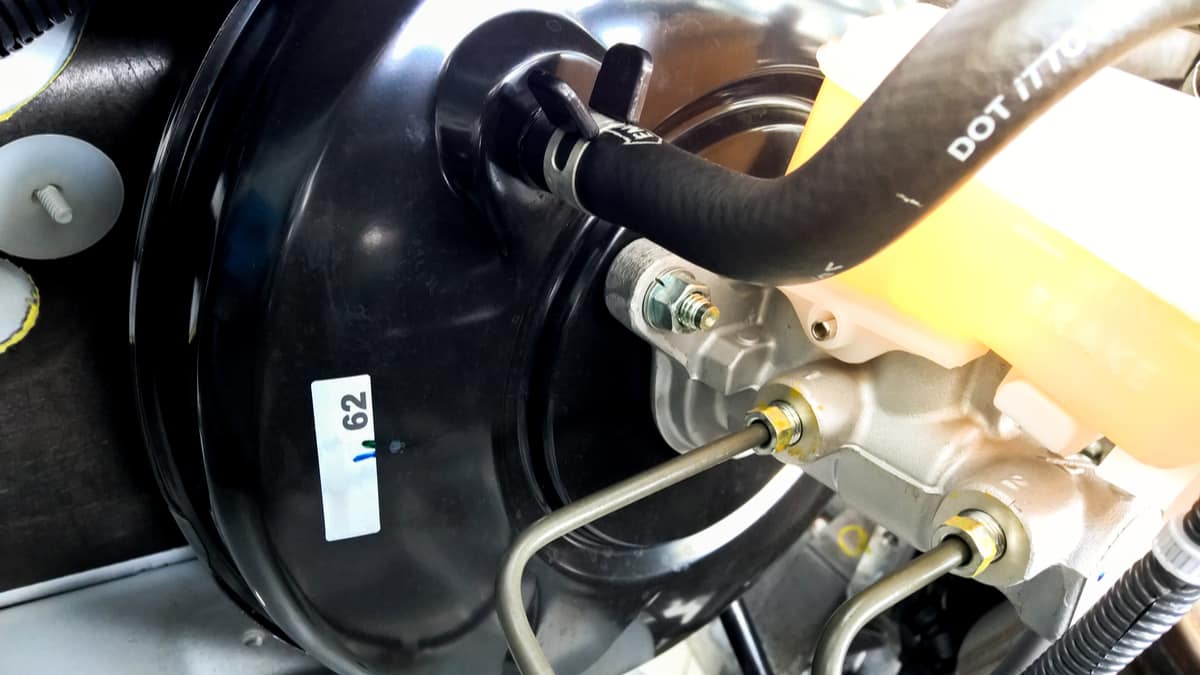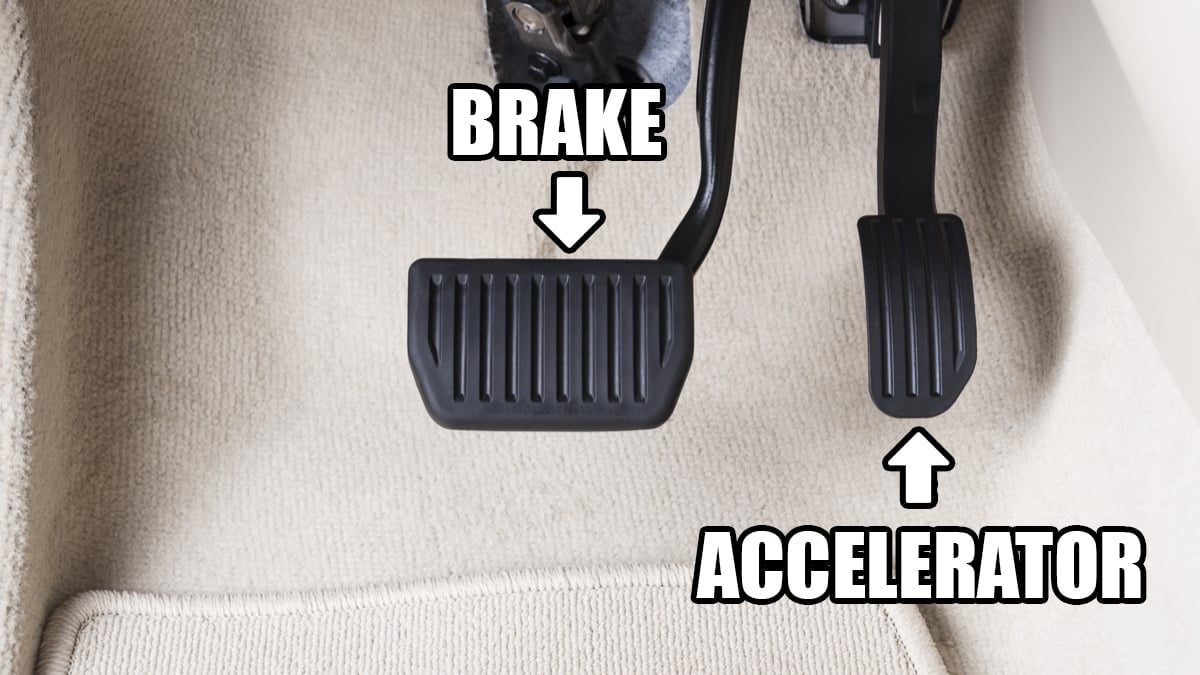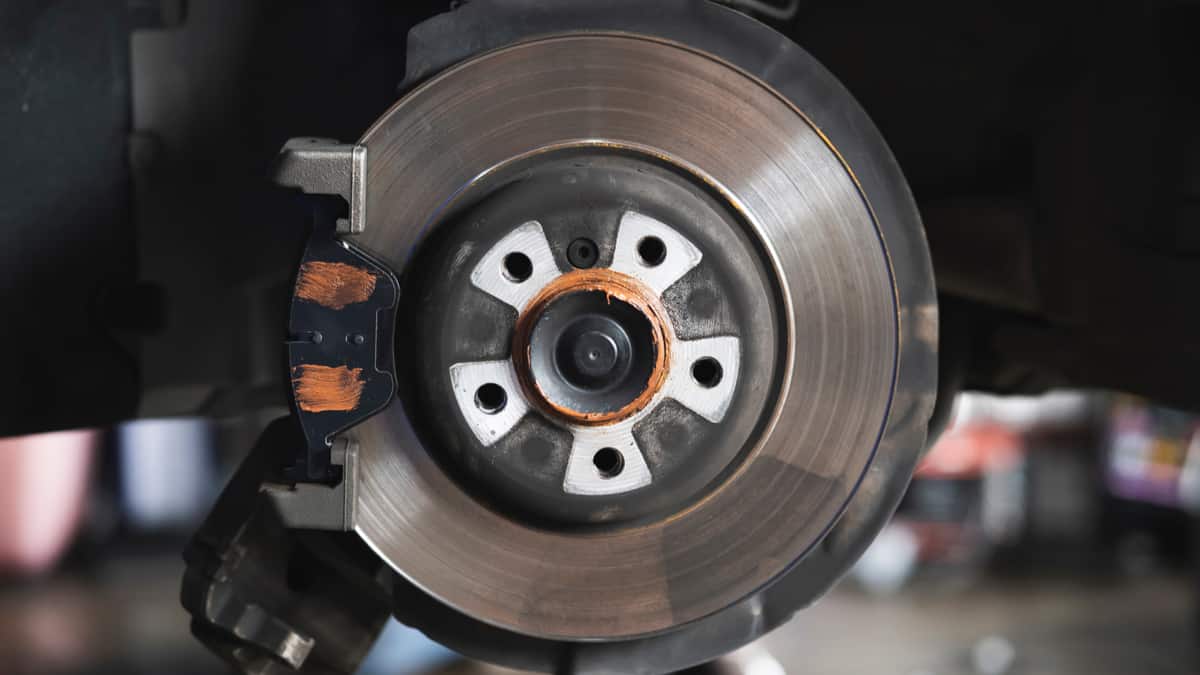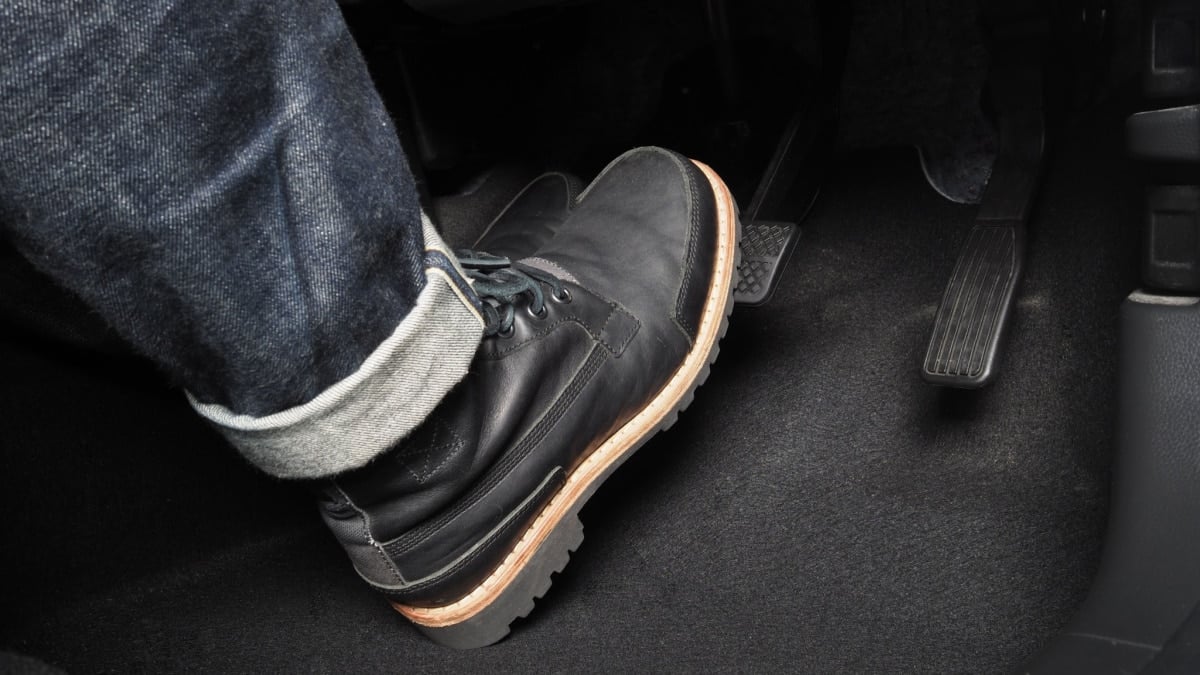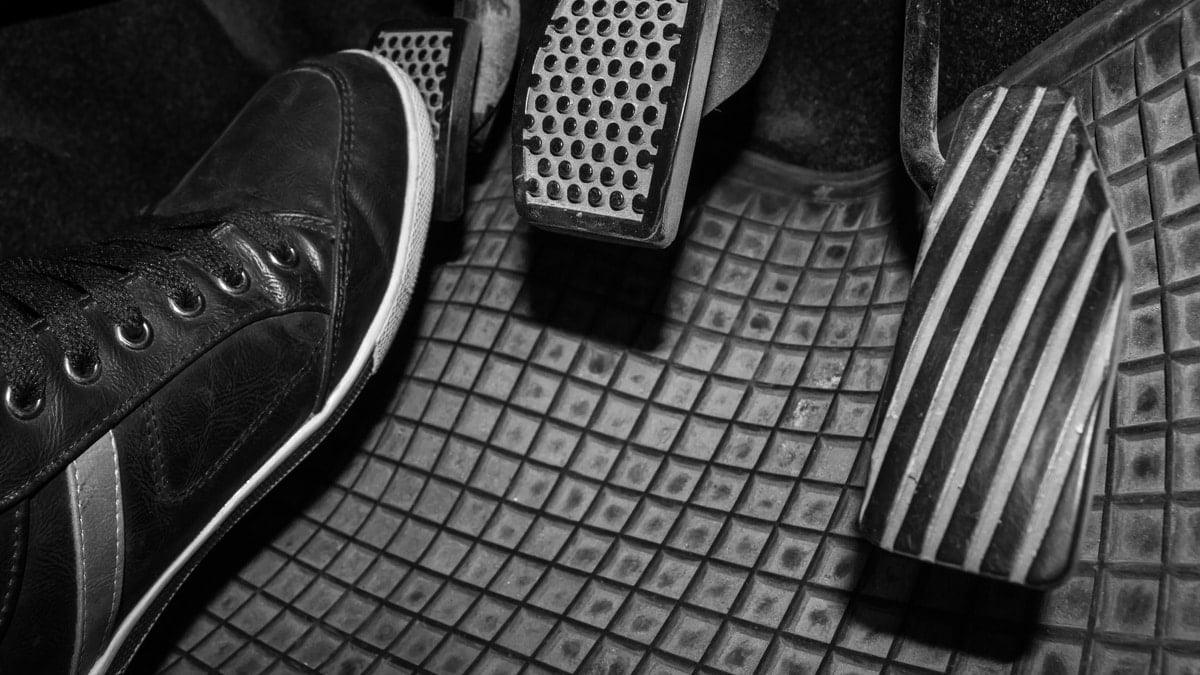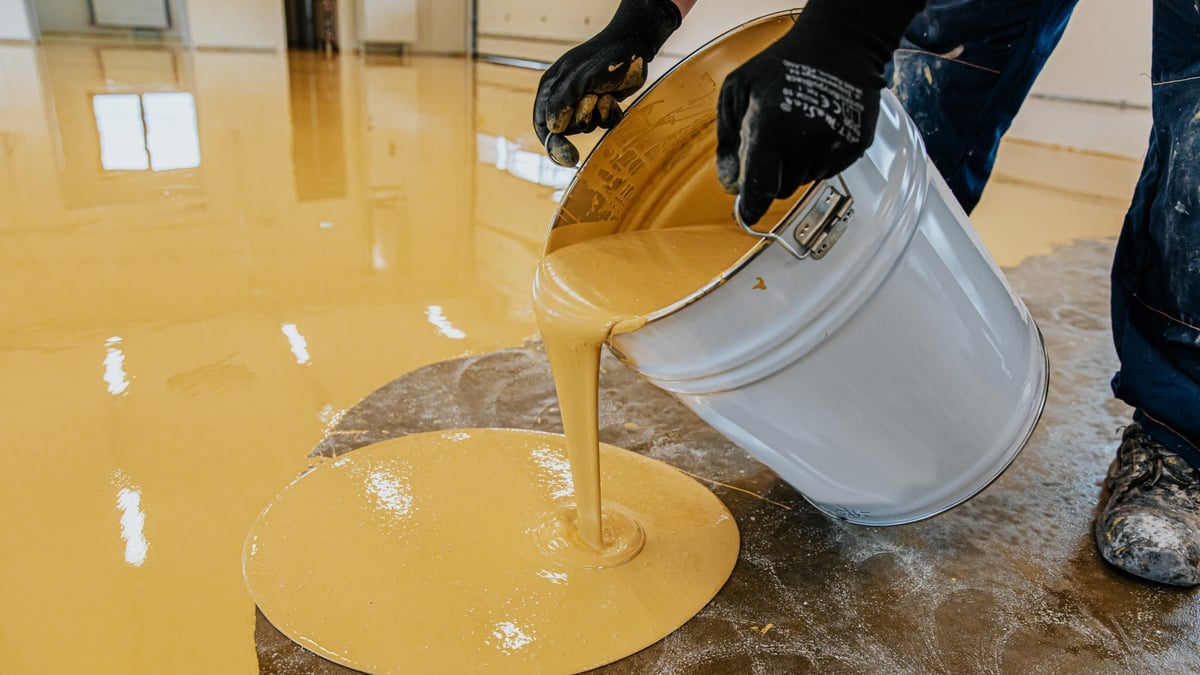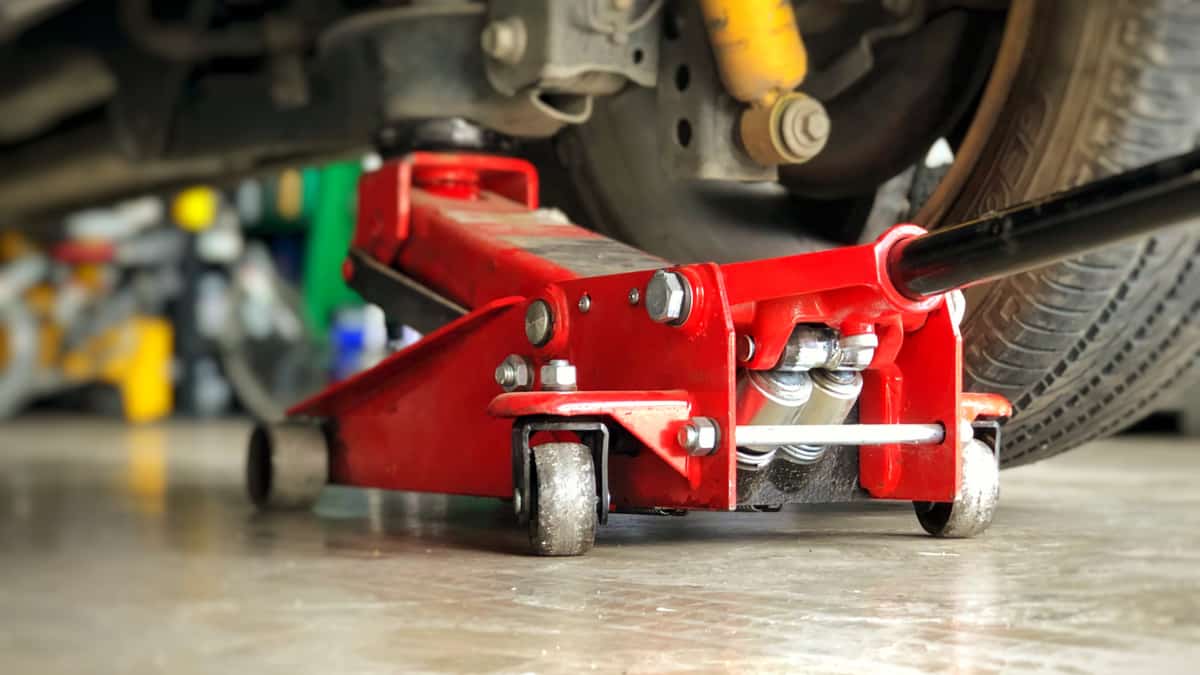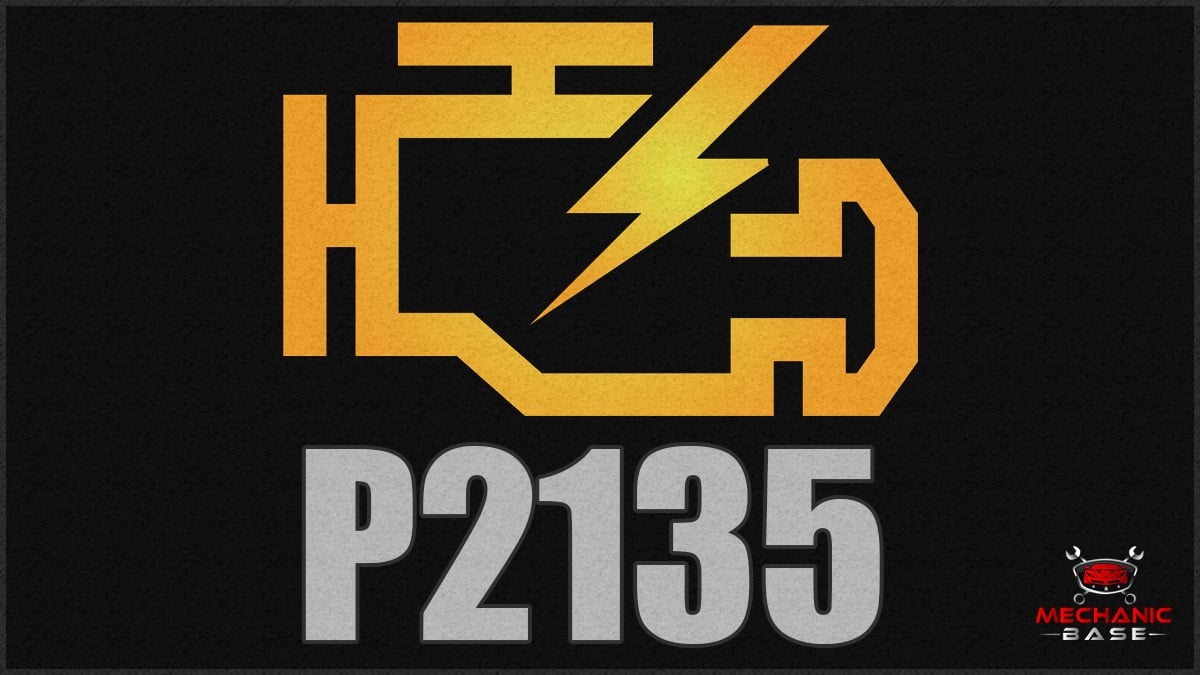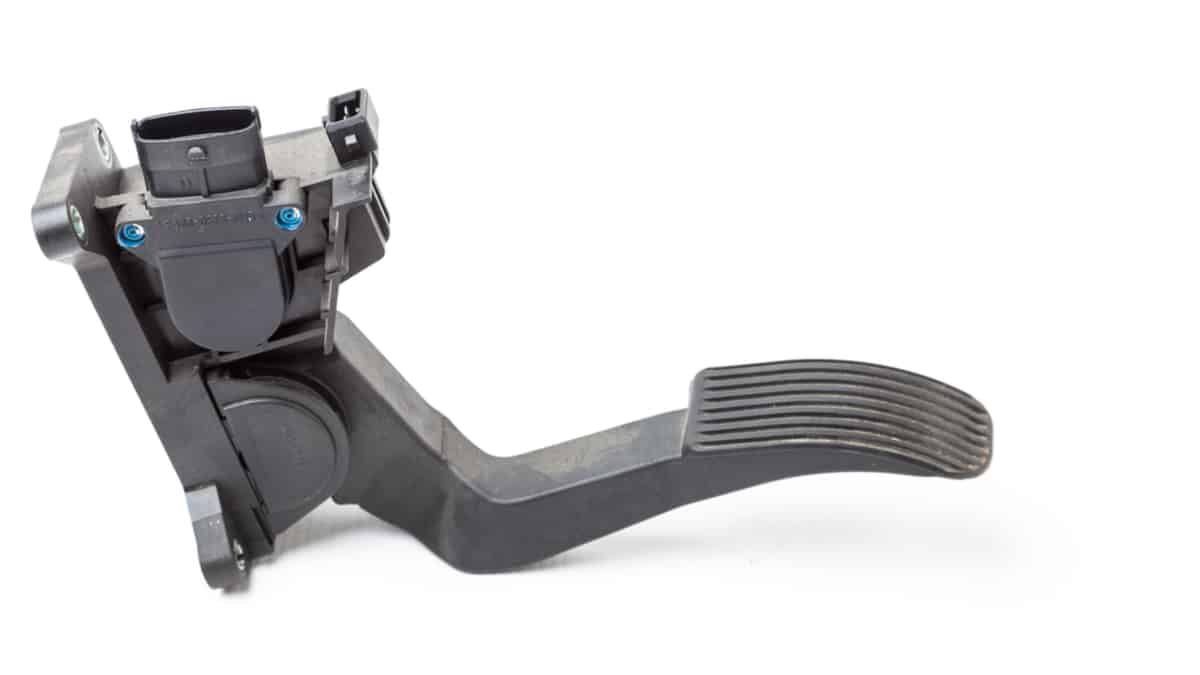You can ignore many small problems when it comes to cars, but you should never ignore any issues with the brakes.
If your brake pedal goes to the floor when the engine is running, you should be extra careful about it. It may actually cause the brake function to disappear completely!
Therefore, it is definitely not recommended to keep driving your car if you experience something like this. But what causes it, and how can you fix it? Let’s take a quick look at the possible causes.
Reasons Why A Brake Pedal Goes to The Floor
The most common reason why a brake pedal goes to the floor is due to a brake fluid leak or air in the brake system. It can also be caused by a faulty master brake cylinder or a bad brake booster. Air in the brake system can be caused by a low brake fluid level.
These causes are the most common causes of why this problem may occur. Here is a more detailed list of the common causes of why the brake pedal goes to the floor when the engine is running or when starting the car.
1. Brake Fluid Leak
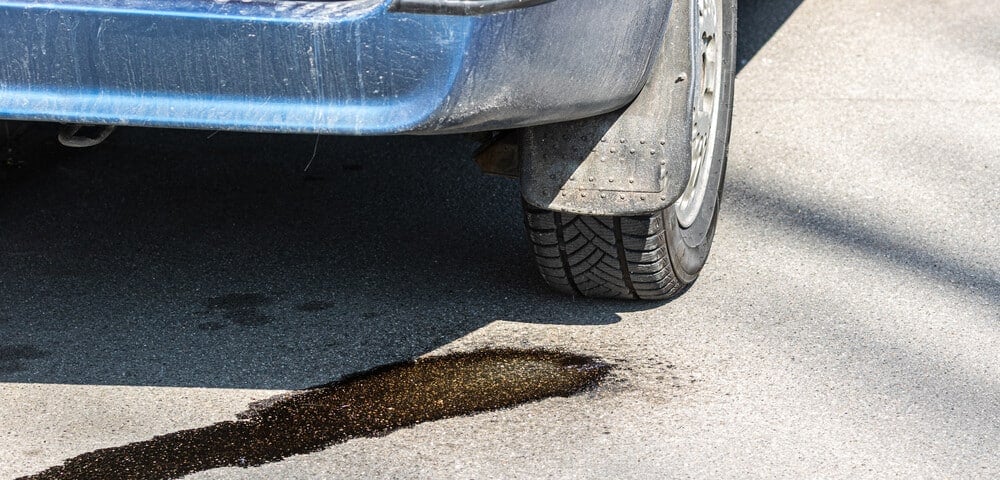
The most common reason why this happens is that you have a brake fluid leak somewhere on the brake system. This is often due to a rusty brake line, but it can also be due to problems with leaking seals at the caliper pistons.
Brake fluid leaks are often very visible on the ground, though, so if you have seen a pool of fluid on the garage floor, it is definitely time to check for any brake fluid leaks.
When you press the brake pedal with a fluid leak, it will cause the brake fluid to pour out. When the brake pedal comes back up, it will instead suck in air through the leak, which will cause your brake pedal to be very swampy.
Related: 5 Symptoms of a Brake Fluid Leak
2. Faulty master brake cylinder
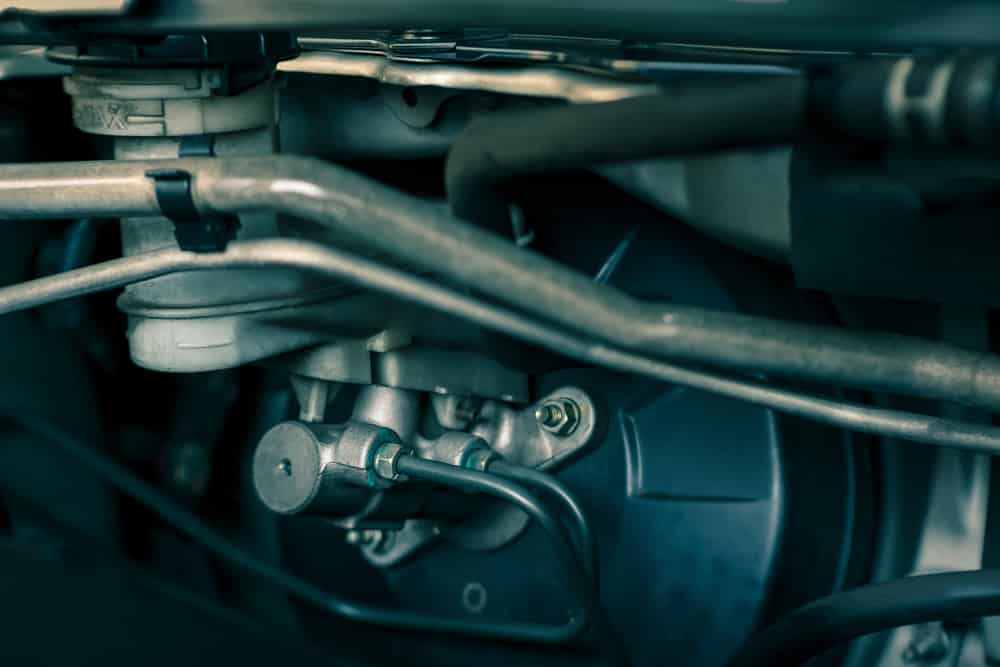
Another common cause of why your brake pedal is going to the floor when the engine is running is a bad master brake cylinder. The master brake cylinder is located behind the brake pedal on the other side of the engine bay’s firewall.
The purpose of the master brake cylinder is to push brake fluid to the caliper pistons to reduce the vehicle’s speed.
The master brake cylinder has a sealing around the pushing piston, and if that sealing starts to leak, the brake pressure will go back on the other side of the piston when you press the brake pedal.
This will cause your brake pedal to always lose pressure when you press it, and this will feel like a swampy or sinking brake pedal.
3. Faulty Brake Booster
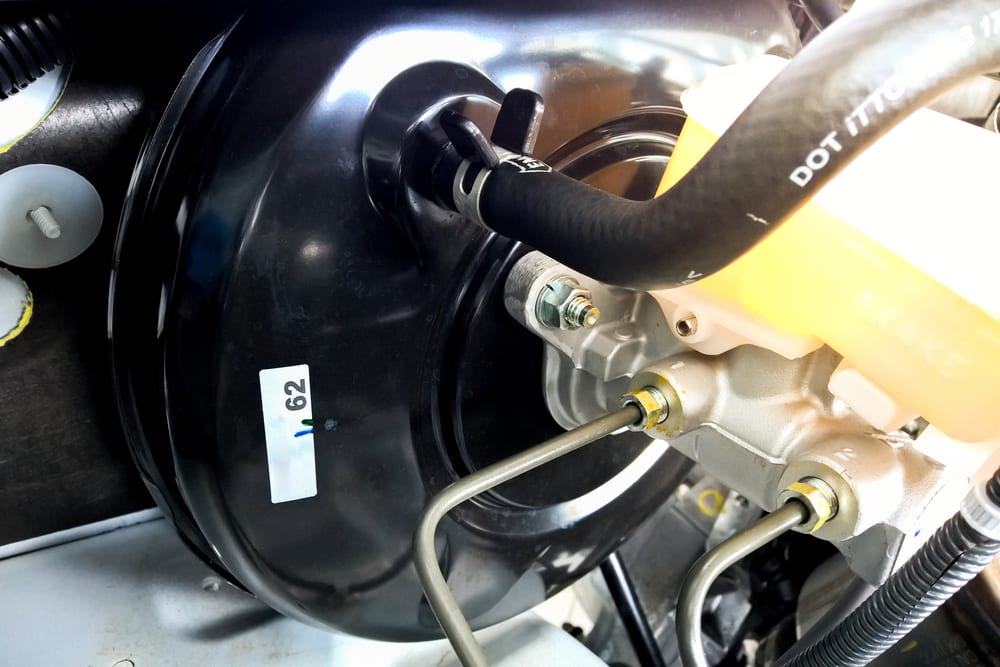
Between the master brake cylinder and the brake pedal, you will find the brake booster. The brake booster uses a vacuum to increase the brakes’ power when you touch the brake pedal.
If you have even driven a car without a functional brake booster, you know how much pressure it requires without it.
If your brake pedal starts to build pressure very low down, but it feels very stiff once it gets there close to the bottom, you most probably have an issue with your brake booster. It is not very common that the brake booster fails, but it happens on some car models.
Related: Symptoms of a bad brake booster
4. Air in the brake system
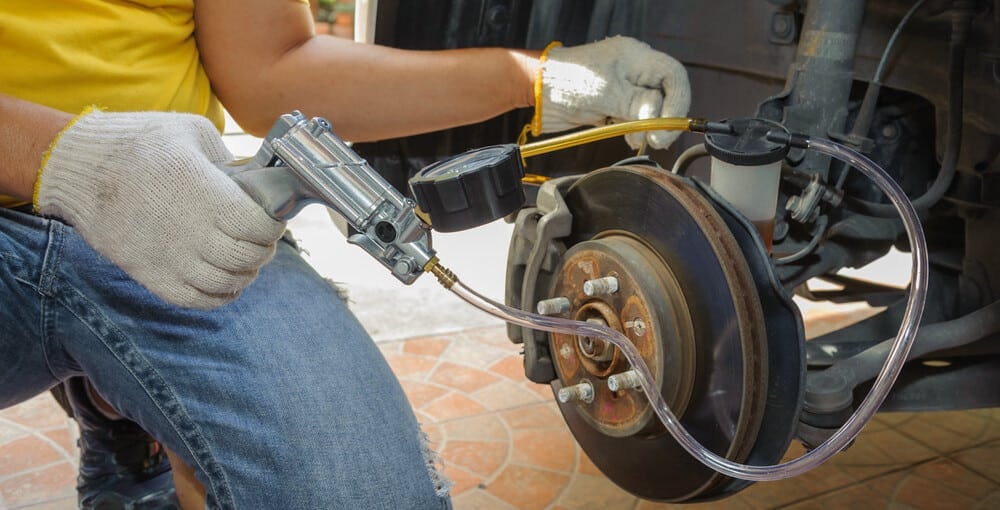
Did you or someone else recently replace something in the car’s hydraulic brake system without performing a proper brake bleeding afterward? Then this may be your issue!
Air is compressible, unlike brake fluid. Therefore, the brake system needs to be completely free from air in order to quickly build pressure and not get a swampy brake pedal.
The only way to remove air from the brake fluid system is to bleed it properly. Here is a video of how you can bleed the brake system.
5. Low Brake Fluid Level
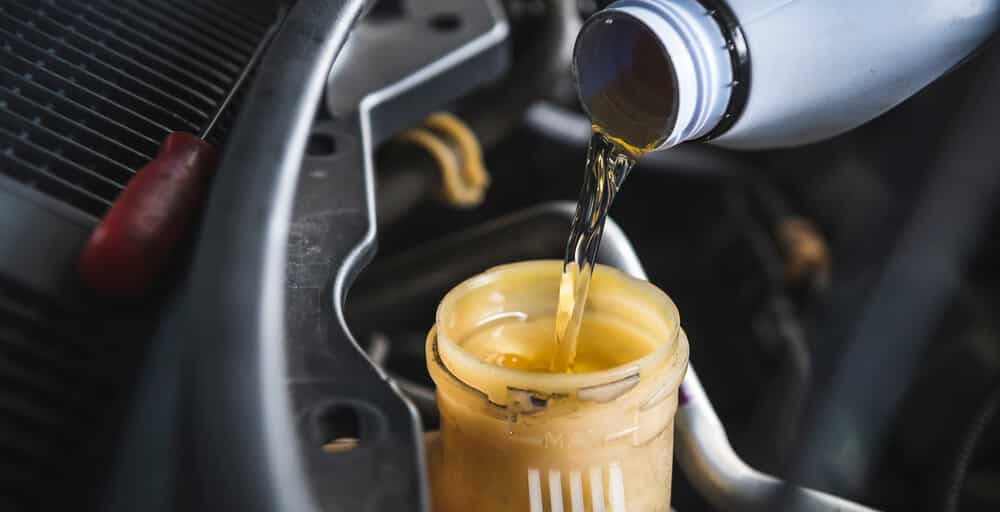
If you have a brake fluid level warning light on your dashboard, it is definitely time to check the brake fluid level.
If the brake fluid level is low, air can come into the brake system when you are taking sharp turns, for example. I talked about what happens with your brake system when you have air inside of it in the previous section.
If your brake fluid is so low that air has come into the system, then there is not enough fluid left to refill it. You will have to bleed the brake system again.
How Do You Fix Brake Pedal That Goes to the Floor?
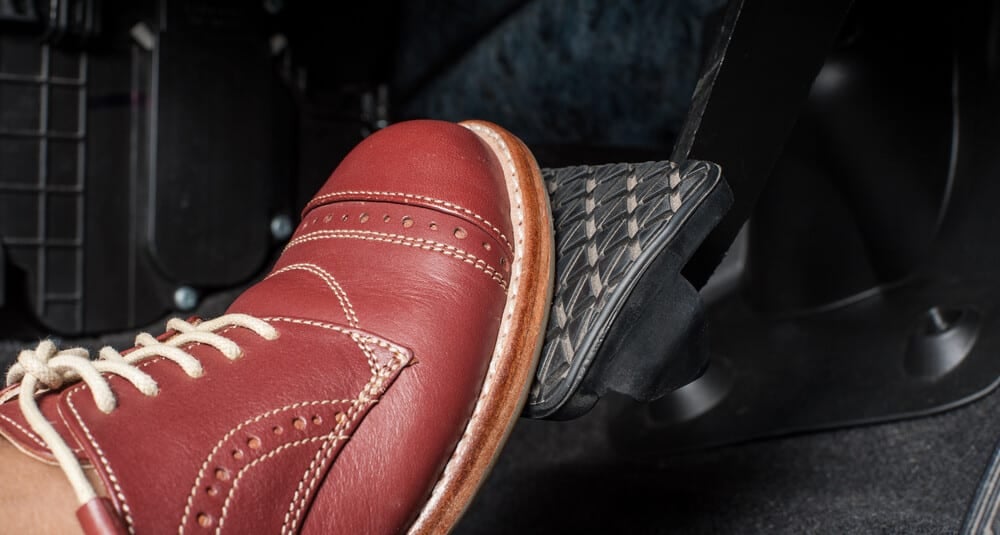
Now that you know the common reasons why your brake pedal may be going to the floor, you probably want to know how to diagnose and how to fix this problem. So let’s begin.
- Look for external leaks: Check everywhere under your car for any signs of brake fluid leaks. Check the brake lines, hoses, and brake calipers. The most common leak is from rusty brake lines, but it can also come from bad rubber seals in the caliper pistons. Replace the leaking part.
- Check brake fluid level: Check the brake fluid level in the reservoir in the engine bay and refill to MAX if necessary. If the fluid level was really low, there might be air in the brake system, which means you have to bleed it.
- Bleed the brake system: The next step is to bleed the brake system to get all air out of it. You can find it in this video for the full process of how to bleed the brake system at home.
- Disconnect the brake booster’s vacuum hose: Disconnect the vacuum hose from the brake booster and try pressing the brake pedal again. If the problem still occurs, you most likely have a faulty master brake cylinder.
- Check or Replace master brake cylinder: Remove and inspect the master brake cylinder for any signs of damage to the seal. For most master brake cylinders, you can not buy the seal alone, so you have to replace the brake cylinder.
- Inspect or Replace Brake Booster: The last step is to inspect and replace the brake booster if you see something suspicious with it. However, if everything else seems fine and you are 100% sure there is no more air in the brake system, there is a big chance that the brake booster is the faulty part.
Why does my brake pedal go to the floor when I start my car?
The most common reasons why your brake pedal goes to the floor when you start your car is because of a brake fluid leak, a faulty master brake cylinder, or a faulty brake booster.
How do you know if the master cylinder is bad?
The easiest way to determine if the master brake cylinder is bad is to remove the brake booster’s vacuum hose. If the pedal is still sinking, it is most likely caused by a fluid leak, air in the system, or a faulty master brake cylinder. The only way to know for sure is to inspect the gasket inside of it visually.
How do I know if my brake booster or master cylinder is bad?
Disconnect the vacuum hose from the brake booster. If the problem disappears when you press your brake pedal super-hard, you most likely have a bad brake booster. On the other hand, if the problem still occurs, you most likely have a bad master brake cylinder.
Why Does My Brake Pedal Go To The Floor After Bleeding?
Sometimes this can happen if you didn’t perform the procedure properly. You need to close the air bleed screws before releasing the brake pedal; otherwise, air will get sucked into the system before you close the bleed valve.
Categories: Brakes, Troubleshooting
